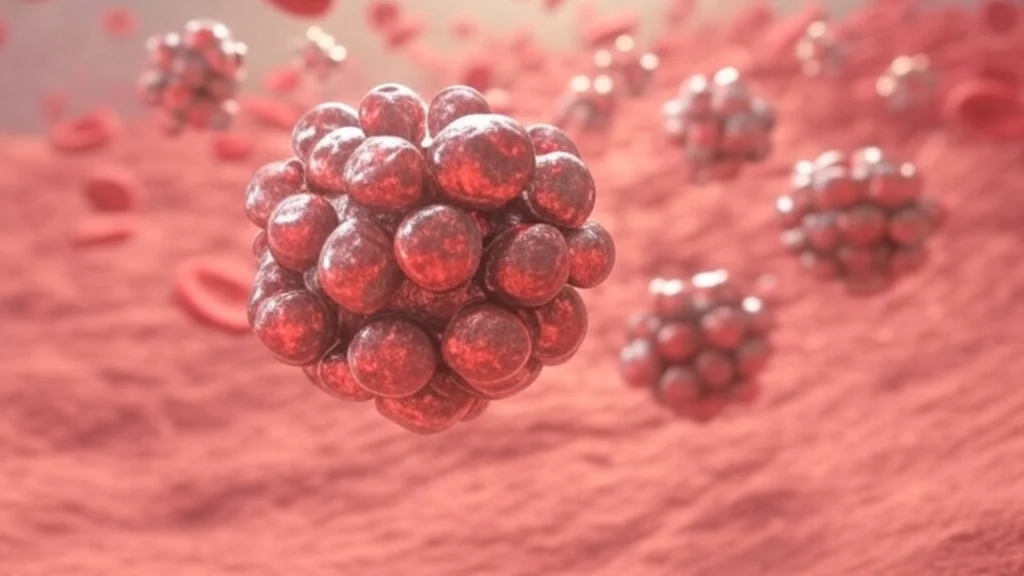Testosterone Replacement Therapy is more than just raising testosterone; it’s about balance. When you take testosterone, some of it naturally converts to estradiol through a process called aromatization. This isn’t a bad thing. In fact, estradiol is critical for men’s health. It plays a key role in bone density, cardiovascular health, libido, mood stability, and cognitive function. Too little? You’ll feel off. Too much? That’s a problem, too.
At the IAM Clinic, most men take testosterone twice weekly, and Anastrozole is prescribed on the same schedule. But here’s the deal—every man is different. Some men metabolize testosterone faster, need more frequent injections, or naturally maintain better estradiol balance. That’s why dosing isn’t one-size-fits-all.
Why Anastrozole? Managing, not blocking
Anastrozole isn’t about blocking estradiol; it’s about managing it. The goal isn’t to shut down estradiol production but to keep it in an optimal range. If estradiol gets too high, issues like water retention, mood swings, or gynecomastia can show up. If it’s too low, you might deal with joint pain, fatigue, depression, or low libido. That’s why this isn’t a guessing game; it’s about monitoring and adjusting as needed.
Some men need Anastrozole, some don’t., and some need a different frequency. If a dose is too high and estradiol crashes, the issue isn’t estradiol but the testosterone dose. That’s why we don’t overdo it on Anastrozole. Testosterone drives estradiol production, so we manage both carefully.
Is Anastrozole always necessary?
Some say Anastrozole isn’t needed at all. Is that true?
A very small percentage of men can maintain healthy estradiol levels without it. But for most men, not managing estradiol leads to issues. Here’s why:
- Genetics & Metabolism – Some men aromatize testosterone less aggressively, meaning their body naturally converts less of it into estradiol if their estradiol stays within a healthy range without Anastrozole, great.
- Testosterone Dose & Frequency – Lower or more frequent doses of testosterone can sometimes keep estradiol from climbing too high.
- Body Fat Levels – Aromatase enzymes live in fat tissue. Men with higher body fat convert more testosterone into estradiol, which is why managing estradiol becomes more critical for them. Leaner men may not need Anastrozole as often, but that’s not a guarantee.
- Sensitivity to Estradiol – Some men tolerate higher estradiol without side effects, while others feel terrible when it’s even slightly elevated. Symptoms, not just lab numbers, determine the approach.
So yes, some men won’t need Anastrozole, but they’re the exception, not the rule. Most men on TRT will need some level of estradiol management to feel their best.
What about high estradiol levels?
Others say they feel great even when their Estradiol (E2) is in the upper range, sometimes even above 50 pg/mL. If you follow social media groups or forums, you’ll see people, and even some clinicians, argue that 80-100 pg/mL is completely fine and doesn’t need to be managed if the patient feels okay.
Now, here’s what’s wrong with that picture and what some are forgetting when E2 stays that high for a prolonged period.
Let’s start with science…
- Estradiol and Cardiovascular Risk — Chronically high estradiol is linked to increased clotting risk, which can raise the chances of deep vein thrombosis (DVT), stroke, or other cardiovascular issues. This is well-documented in medical literature.
- Prolactin & Gynecomastia — Higher estradiol can drive up prolactin, leading to gynecomastia (breast tissue growth) over time, even if symptoms aren’t immediately noticeable.
- Water Retention, Blood Pressure & Migraines — Excess estradiol increases water retention, which can contribute to higher blood pressure and put additional strain on the heart. Estradiol has been shown to modulate migraine susceptibility and activity in men.
- Impact on Libido & Mood — While estradiol plays a major role in sexual health and mood, excessive levels can cause irritability, emotional instability, and even lower libido in the long run.
Now, in real life…
- Many men who claim high estradiol is fine end up feeling terrible later, they don’t notice the subtle changes immediately.
- Some think they’re fine because they’ve adapted to feeling suboptimal, they assume symptoms like fatigue, mood swings, or brain fog are unrelated.
- Plenty of guys who once said, “I don’t need Anastrozole,” end up needing it months or years later when the effects of prolonged high estradiol catch up with them.
- Just because someone feels okay at 80-100 pg/mL today doesn’t mean they won’t pay the price down the road.
Take home is this
Testosterone and estradiol work together, and both are essential for your health. But balance matters. Letting estradiol run high just because you feel fine now isn’t a smart long-term strategy.
At IAM, we don’t guess, we monitor. We adjust based on labs and symptoms, not trends or online opinions. If estradiol needs to be managed, we manage it. If you don’t need Anastrozole, we won’t prescribe it. But ignoring prolonged high estradiol levels is a mistake, one that too many men realize when it’s too late.
However, at IAM, we don’t force anyone to take anything they don’t want to take. Your treatment is your choice. We provide the best medical guidance and research-backed care, but at the end of the day, it’s your body, your health, and your decision.
Your health, simplified. That’s what we do.
